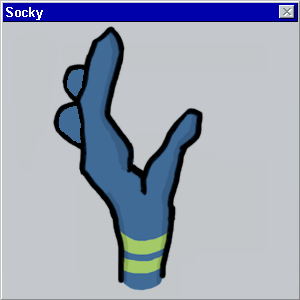Fargo: The Principle of Restricted Choice
April 27, 2017 11:46 AM - Season 3, Episode 2 - Subscribe
Gloria deals with the aftermath of a crime, Varga makes a move, and Ray and Nikki move on to Plan B.
(for benefit of anyone as slow as me: David Thewlis = V.M. Varga (the gangster moving in on the parking lot king)
posted by thelonius at 2:04 PM on April 27, 2017 [2 favorites]
posted by thelonius at 2:04 PM on April 27, 2017 [2 favorites]
Those book covers were spot on. (Haven't seen a gallery of them yet online, but I'm sure one will pop up.)
posted by Catblack at 5:55 PM on April 27, 2017 [1 favorite]
posted by Catblack at 5:55 PM on April 27, 2017 [1 favorite]
In the garage, when Irv first runs into Varga's men, one of them says he remembers (or knows?) him from the old country. That man says his name is Yuri. IMDB says his name is Yuri Gurka. That is also the name of the man wanted by the Stasi (not the man they mistakenly have in custody.) To be continued.
Fargo movie callback: Emmit tells Sy to talk to Stan "We're not a bank, Jerry." Grossman about condo development.
Another woman being denied a sheriff's badge.
"If singular means just one." Reminds me of "No, unless round is funny." from Raising Arizona.
I think this is going to be a good season!
posted by Room 641-A at 6:19 PM on April 27, 2017 [1 favorite]
Fargo movie callback: Emmit tells Sy to talk to Stan "We're not a bank, Jerry." Grossman about condo development.
Another woman being denied a sheriff's badge.
"If singular means just one." Reminds me of "No, unless round is funny." from Raising Arizona.
I think this is going to be a good season!
posted by Room 641-A at 6:19 PM on April 27, 2017 [1 favorite]
It's a bit of odd synchronicity that technology also doesn't work for Carrie Coon in The Leftovers right now.
posted by snofoam at 7:42 PM on April 27, 2017 [1 favorite]
posted by snofoam at 7:42 PM on April 27, 2017 [1 favorite]
So, I was very excited to see the title! As I can't help mentioning every time it comes up, I'm a bridge player, and the principle of restricted choice states that if a player plays any given card (eg a queen) then they are less likely to have an equivalent card (eg a jack or king). This principle is used when trying to work out who has what cards.
So, I'm still trying to figure out how it pertains to the show, specifically (obviously it pertains in general: we don't know who has what cards). But restricted choice comes into play when some cards are known.
I guess I'm overthinking it: the writers probably just liked the term and wanted to use it to emphasize how Emmit has no, or very restricted, choices on how to deal with Varga.
posted by gaspode at 8:05 PM on April 27, 2017 [5 favorites]
So, I'm still trying to figure out how it pertains to the show, specifically (obviously it pertains in general: we don't know who has what cards). But restricted choice comes into play when some cards are known.
I guess I'm overthinking it: the writers probably just liked the term and wanted to use it to emphasize how Emmit has no, or very restricted, choices on how to deal with Varga.
posted by gaspode at 8:05 PM on April 27, 2017 [5 favorites]
There's an underlying theme of Gloria and technology not getting on: the automatic doors never work for her, she doesn't like the computers. And we were very deliberately shown here that although she has a cellphone it's not reliable.
On the other side of the coin, technology works extremely well for Vargas and his gangsters. A callback to last season might be the way that we see Mike, left in an office with a computer at the KC crime syndicate.
posted by codacorolla at 8:08 PM on April 27, 2017 [1 favorite]
On the other side of the coin, technology works extremely well for Vargas and his gangsters. A callback to last season might be the way that we see Mike, left in an office with a computer at the KC crime syndicate.
posted by codacorolla at 8:08 PM on April 27, 2017 [1 favorite]
I can't say this episode did much for me. I could do without the politics/tension between Gloria and the other Chief. It just seems distracting.
posted by Thorzdad at 11:01 AM on April 28, 2017 [1 favorite]
posted by Thorzdad at 11:01 AM on April 28, 2017 [1 favorite]
Ditto, Thorzdad. I can't see that playing out any way that isn't trope-y. Some tension is probably inevitable, but there are better ways to deliver it -- procedural differences, maybe, or the possibility Gloria is considered too emotionally involved to investigate Ennis' murder. I really would have liked a working relationship like the one between Major Kira and Senator Cretak in DS9: Grudging tolerance/cooperation becomes mutual respect until circumstances demand uncompromising opposition. Instead it looks like they're setting up a standard chest-thumping arc.
posted by Fish, fish, are you doing your duty? at 12:08 PM on April 28, 2017
posted by Fish, fish, are you doing your duty? at 12:08 PM on April 28, 2017
the show has made a conscious choice two seasons in a row to isolate the central police character from the rest of their department, to deprive them of resources that might make the case easier to solve and to put them alone against the criminal conspiracy they're investigating. it's a key component of this show and a major reason every interaction between molly or lou and the criminals feels so intense. so they're obviously doing that once more, and i'm not worried at all about noah hawley just repeating stale tropes.
posted by JimBennett at 1:19 PM on April 28, 2017
posted by JimBennett at 1:19 PM on April 28, 2017
Isolation from resources can be a key element without being achieved the same way season to season. It doesn't always need to be "spunky dogged cop follows instincts in spite of other cop(s) with more authority than sense." The season is set in 2010, so there's already plenty of narrative potential for Gloria's trouble with technology. Her refusal to use it doesn't need the additional I'M IN CHARGE NOW/YOU'RE NOT THE BOSS OF ME trope.
Hawley indicated this season of Fargo will be about "money crime." These episodes seem to be setting up a story about "abstract" (e.g., money laundering and malware) and tangible crimes (e.g., murder), and about the different tools and approaches needed to commit and investigate each. Contrast Ray and Nikki's analog criminality with Varga's more corporate style; it would never occur to the former to hack into Emmit's bank accounts instead of breaking into his office. There's an interesting story here about the ways technology changes crime and punishment, just as last season explored how corporatization changes business. It will be interesting to see how Gloria's resistance to/difficulty with technology impacts her work. On the one hand, her inability to depend on her cell phone might force her to be more resourceful in certain circumstances; on the other, she probably won't think to order a forensic examination of Irv's computer.
So this isolation easily could have been the character's choice, without being motivated by personal animus. Or it could develop later, over a disagreement over the practical application of tech to a particular matter. It could even happen as part of a story about her re-learning police work and having to face danger with tech that is unmastered, unreliable, or both. Instead we just have one cop asserting his authority and another cop resisting it. One of the chief pleasures of Hawley's shows is how unpredictable they can be, and it was disappointing to see Gloria and Moe's introduction play out so predictably.
posted by Fish, fish, are you doing your duty? at 4:19 PM on April 28, 2017
Hawley indicated this season of Fargo will be about "money crime." These episodes seem to be setting up a story about "abstract" (e.g., money laundering and malware) and tangible crimes (e.g., murder), and about the different tools and approaches needed to commit and investigate each. Contrast Ray and Nikki's analog criminality with Varga's more corporate style; it would never occur to the former to hack into Emmit's bank accounts instead of breaking into his office. There's an interesting story here about the ways technology changes crime and punishment, just as last season explored how corporatization changes business. It will be interesting to see how Gloria's resistance to/difficulty with technology impacts her work. On the one hand, her inability to depend on her cell phone might force her to be more resourceful in certain circumstances; on the other, she probably won't think to order a forensic examination of Irv's computer.
So this isolation easily could have been the character's choice, without being motivated by personal animus. Or it could develop later, over a disagreement over the practical application of tech to a particular matter. It could even happen as part of a story about her re-learning police work and having to face danger with tech that is unmastered, unreliable, or both. Instead we just have one cop asserting his authority and another cop resisting it. One of the chief pleasures of Hawley's shows is how unpredictable they can be, and it was disappointing to see Gloria and Moe's introduction play out so predictably.
posted by Fish, fish, are you doing your duty? at 4:19 PM on April 28, 2017
I'm not sure it will come to anything narratively, but it's not really possible to be hacked if you don't use computers. VM Varga doesn't just brick your computer if you search for him. I believe he mentioned that part of their research into Stussy was to infiltrate Stussy's computer systems. What if they also infiltrated state/federal computer systems? It would be pretty hard to nail a guy who erases their existence any time anyone gets close to him.
This might be a bit of a reach, but in the opening of the first episode, the man being accused of murdering his non-existent girlfriend tries to refute the charges as nonsensical while the official rebukes him and asks if he's saying The State made a mistake. For some people the idea that The State made a mistake is blasphemy and it might be that something similar will play out with computers and the internet. So Noah Hawley might be trying to draw parallels between rigid bureaucracies and computers. And it seems reasonable that since Gloria doesn't use computers she won't be susceptible to Varga's methods of remaining undetected while also having to contend with a bureaucracy that might have trouble admitting it's wrong.
posted by Green With You at 10:39 AM on May 1, 2017
This might be a bit of a reach, but in the opening of the first episode, the man being accused of murdering his non-existent girlfriend tries to refute the charges as nonsensical while the official rebukes him and asks if he's saying The State made a mistake. For some people the idea that The State made a mistake is blasphemy and it might be that something similar will play out with computers and the internet. So Noah Hawley might be trying to draw parallels between rigid bureaucracies and computers. And it seems reasonable that since Gloria doesn't use computers she won't be susceptible to Varga's methods of remaining undetected while also having to contend with a bureaucracy that might have trouble admitting it's wrong.
posted by Green With You at 10:39 AM on May 1, 2017
He's playing a jerk here, but excited to see Shea Whigham.
posted by drezdn at 9:02 AM on November 29, 2017
posted by drezdn at 9:02 AM on November 29, 2017
One thing I don't understand if how them taking the loan means they're so in the hock for whatever this is. The show didn't do a great job in making it clear why they feel they have to put up with this.
posted by Carillon at 9:03 PM on October 3, 2020
posted by Carillon at 9:03 PM on October 3, 2020
You are not logged in, either login or create an account to post comments



There's an underlying theme of Gloria and technology not getting on: the automatic doors never work for her, she doesn't like the computers. And we were very deliberately shown here that although she has a cellphone it's not reliable.
posted by We had a deal, Kyle at 12:29 PM on April 27, 2017 [3 favorites]